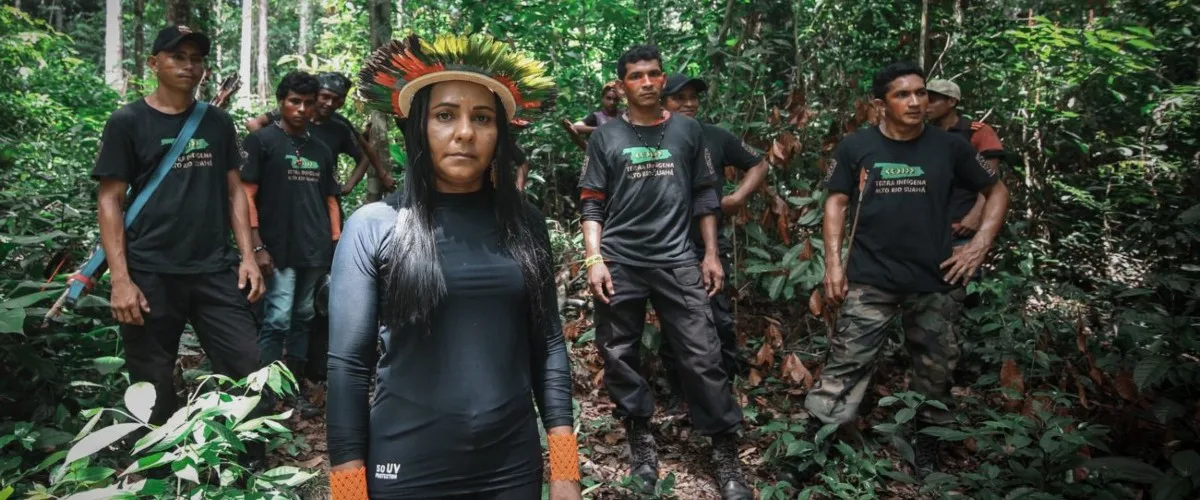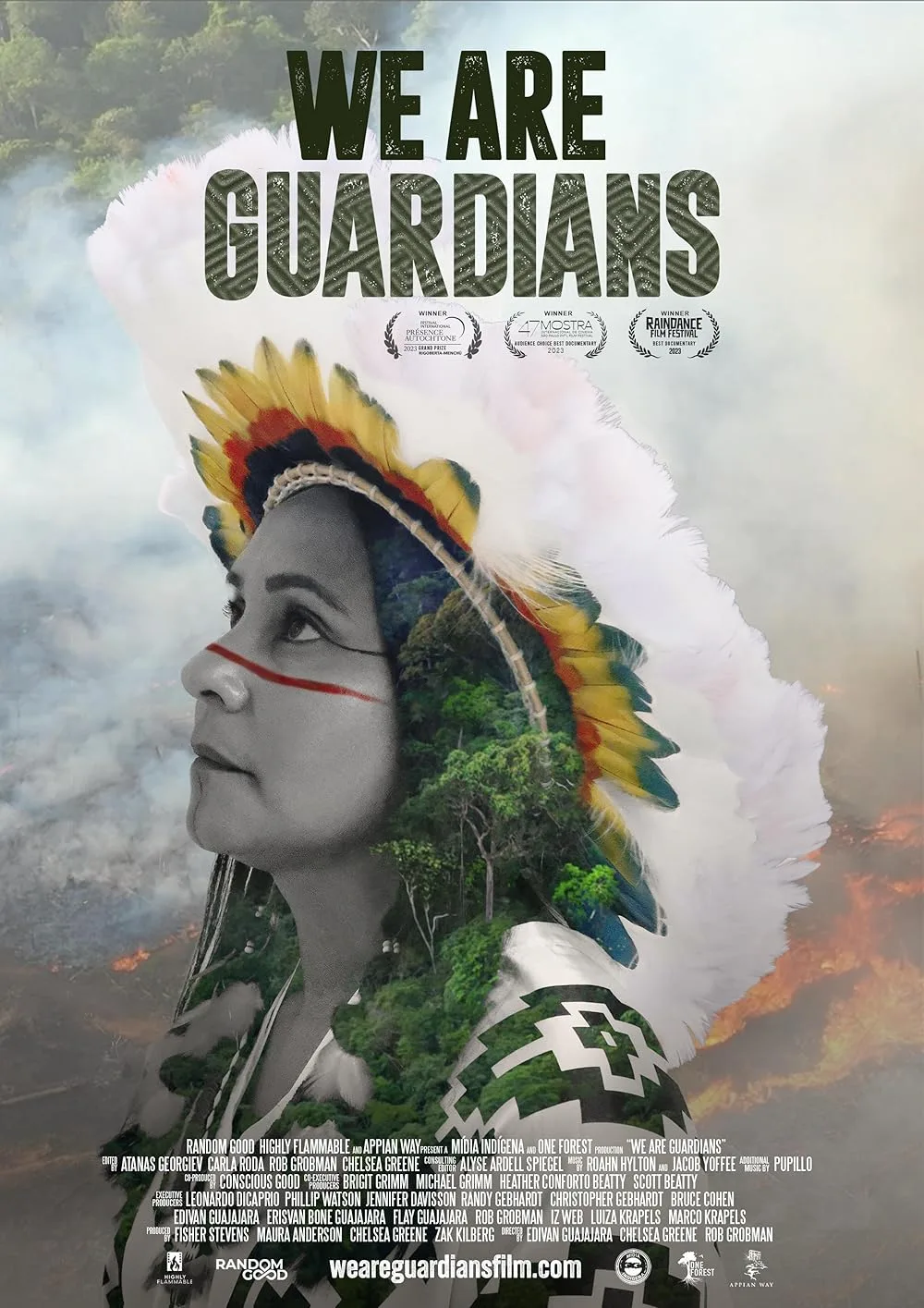The first thing you notice is the sound design: the flutter of birdsong and chirp of insects across the misty sprawl of the Amazon rainforest. Ants work; sloths don’t.
But then another noise interrupts this peaceful balance: the buzz of chainsaws, and the creak and crash of centuries-old trees as they topple to the ground.
The documentary “We Are Guardians” tracks the constant conflict between the ecological and spiritual significance of this crucial section of Brazil and the commercial forces that brazenly invade to strip it of its resources.
Directors Edivan Guajajara, Chelsea Greene, and Rob Grobman follow several figures with a variety of interests in this precarious area. Indigenous people fight and often die to protect the land. Logging companies tear through it for profit. Ranchers try to feed their own families on small farms. However, rather than taking a strong stance in one direction or another, “We Are Guardians” aims to sympathize with everyone involved, or at least to enlighten us as to the complexity of their motivations. All these people are struggling to survive.
The climate-change element of the film is unmistakable, though, and unsurprising given that the film comes from Leonardo DiCaprio’s production company. The existence of a thriving rainforest in the Amazon is essential not only to Brazil, or even South America, but the entire planet. Climate scientist Luciana Gatti explains how the creation of rain is the most important resource the country has, and graphics, maps and aerial shots starkly reveal how the forests have diminished over time.
In that regard, “We Are Guardians” is very much on the side of the titular guardians themselves: Indigenous people whose mission has been to protect the land for centuries. Marçal Guajajara and Puyr Tembé are along the more high-profile faces we see in this fight. It’s their home, where they hunt and fish and raise their families. While Guajajara is a leader in the internal defense force, Tembé takes the battle outside the forest to the nearby city of Belém and the capital of Brasilia, often in her native garb, as an activist at conferences and protests.
But logger Valdir Duarte must feed his own family, and he only gets to see them when he leaves the forest for a few days each month. “We know that we’re working illegally, but we’re forced to do it, otherwise how are we going to live?” Duarte asks rhetorically in Portuguese. The filmmakers regard him with just as much dignity as the other figures they follow, even though they clearly oppose what he’s been doing for the past 30 years.
Meanwhile, Tedeu Fernandes has spent those decades buying up big swaths of land in hopes of turning them into an eco-sanctuary. Still, the illegal logging continues unabated, as Fernandes explains in describing an entire village with a sawmill that exists within private territory. A particularly effective montage shows him standing in front of all the government buildings where he’s filed complaints with various agencies over the years, to no avail.
Logging is a huge industry in Brazil, particularly under the recent regime of former President Bolsonaro, who wanted to suppress the rights of Indigenous people and exploit the region for potassium. When you look at it from that perspective, it seems as if there’s no end in sight, and the issue seems too massive for anyone—or any film—to get their arms around.
But then, “We Are Guardians” will get up close and personal in a dispute between Tembé and her fellow Indigenous fighters and some thieves who are illegally taking açaí berries for profit. It’s a tense moment on the river, but the two sides talk with each other firmly yet respectfully, coming to an agreement without escalating into violence.
It’s not the answer to this seemingly endless conflict, but it provides a glimmer of hope.




















